
October 2020
VMCAS Applicant Numbers Soar 19 Percent Year-Over-Year

The number of applicants seeking admission to veterinary medical college during the 2020-21 admissions cycle rose an astonishing 19% year-over-year. Preliminary data show that a total of 10,273 applicants submitted applications this year, compared to 8,645 last year. Over the past several years, the number of applications has grown about six to seven percent year over year. 2020-21 cycle applicants each applied to an average of 4.89 different schools.
A significant rise in the application submit rate was also noted during the cycle. The submit rate, which is the number of applicants who begin and complete the application process with the Veterinary Medical College Application Service (VMCAS), rose to 79%. That has historically averaged about 72-73%.
The number of applicants seeking admission to veterinary college has been growing steadily in recent years. However, nearly tripling the annual year-over-year growth rate is remarkable.
The specific factors responsible for the extraordinary increase remain unclear, however, several things could have contributed. The AAVMC opened this year’s cycle in January as opposed to May to enable applicants to have more time to construct their applications. The AAVMC’s Office of Admissions and Recruitment also presented more informational webinars and increased communication with applicants.
Also, the COVID-19 pandemic has increased public awareness of the importance of the veterinary medical profession in several ways. The rise in the number of people working remotely from home has led to increased attention toward family pets and greater appreciation for the human/animal bond. That’s led to busier clinical practices and rising animal shelter adoption rates.
People may also be more aware of the role of the veterinary medical profession in preventing and fighting zoonotic infectious diseases like the current COVID-19 pandemic.
Transcription verification processes will continue through mid-October, but AAVMC officials do not expect significant variance. The AAVMC will release final information in the near future.
2021 AAVMC Annual Conference Transitions to Virtual Experience

The March 2021 AAVMC Annual Conference & Iverson Bell Symposium will be presented as a virtual experience because of the pandemic. The conference theme, “Catalyze 2021: Connect & Innovate in the Face of Global Challenges” remains the same.
Originally scheduled for March 4-6, 2021 at the Watergate Hotel, the meeting is now tentatively scheduled for a five-day period March 1-5 using the latest digital conference presentation technologies and strategies.
“Unfortunately, the global pandemic continues to disrupt ‘business as usual’ in every way,” said AAVMC CEO Dr. Andrew T. Maccabe. “Our objective is to protect the health and wellbeing of our registrants and do our part to battle this pandemic while still providing the quality professional development experiences they need. We’re looking forward to incorporating some exciting innovations during this event.”
The Conference Planning Committee, Manager for Meetings and Events Leslie Wilson and other team members are working diligently to develop a conference that leverages the many opportunities of a virtual experience.
Registration is scheduled to open on October 19, 2020.
More information about prominent guest speakers will be shared in the weeks ahead, and the virtual conference will feature the high-quality professional development programs and networking opportunities that are part of the annual conference.
AAVMC Launches Virtual Diversity Community Reads Book Club October 14

Book clubs are a great way to share thoughts in a context that’s both intellectual and social. Good book clubs can entertain, build friendships and increase awareness about important issues.
For those reasons and more, the AAVMC is launching a Community Diversity Reads book club that kicks off with an online Zoom discussion at 4 p.m. ET on Wednesday, October 14.
The program is designed to promote texts exploring diversity issues in higher education and use new knowledge to improve diversity, equity and inclusion efforts within member institutions.
The book Academic Ableism by Jay Dolmage is the first book that the club will explore. The book is available for free download here.
University of Michigan Press describes the book as, “Examining everything from campus accommodation processes, to architecture, to popular films about college life, (author) Dolmage argues that disability is central to higher education, and that building more inclusive schools allows better education for all.”
AAVMC Senior Director for Institutional Research & Diversity Dr. Lisa Greenhill says that the club will explore three major areas during discussions:
- In what ways is veterinary medical education (and health professions education) ableist and what can we do to dismantle it structurally and in the curriculum?
- The pandemic has changed approaches to accessibility and there has been a lot of criticism among the disability community about the irony of these changes. What changes can/should we maintain post-pandemic to continue improving accessibility for our students, faculty and staff?
For those of us in organizations, in what ways can we reduce ableist approaches to our work? How can we make what we do more accessible to our colleagues and members?
Registration for the program is free and easy on this site. Registrants will receive the Zoom link via email and can also find on-the-fly engagements on Twitter and Facebook using the hashtag #AAVMCReads!
Survey on Academic Leadership Needs, Challenges & Opportunities Completed
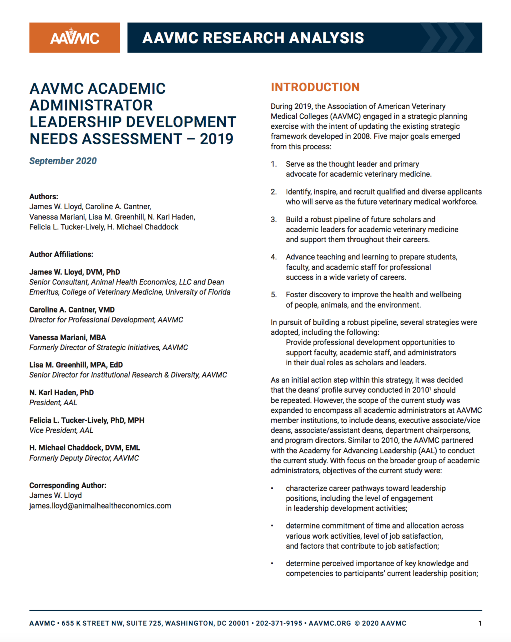
The AAVMC strives to build and sustain a healthy pipeline of future scholars and leaders in academic veterinary medicine. To advance that goal, the AAVMC commissioned a study to formally assess leadership development needs.
More than 400 existing member institution administrators were invited to share their thoughts on key leadership attributes and competencies, career pathways, job satisfaction, current challenges, programmatic opportunities and other aspects of leadership.
Some of the greatest challenges identified by administrators participating in the study include the recruitment and retention of talented human resources and funding. Opportunities for programmatic development include: conflict management; budget development and fundraising; diversity, equity and inclusion; communications; peer mentoring and others.
The study provides a rigorous assessment of the current environment and future needs. It will help guide AAVMC programmatic development in this key area during the years ahead and provide guidance to AAVMC member institutions in their own programmatic development. To examine the study, please click here.
AAVMC Probing Strategies for Supporting Research Mission
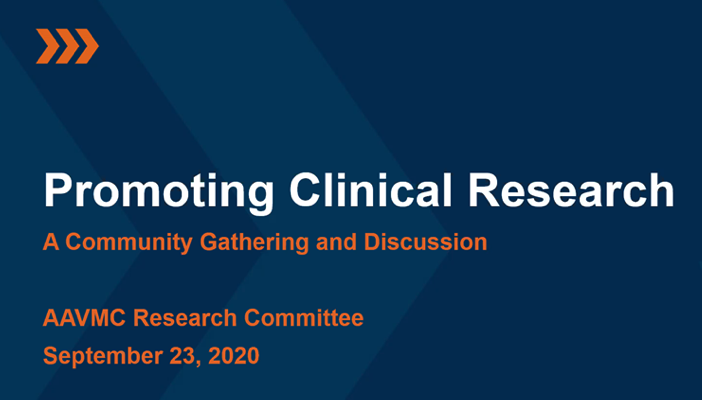
One of the five major goals outlined in the new strategic plan is to “Foster discovery to improve the health and wellbeing of people, animals and the environment.”
Momentum is building, as was evident during a recent meeting of the AAVMC Research Committee, which focused on promoting clinical research. The meeting included 22 associate deans for research and committee members.
A January 2020 survey of the AAVMC Research Committee membership identified the need for a greater sense of community among member institution researchers, as well as discussions on a variety of topics germane to their work. In response, committee leaders decided to present a series of events, approximately monthly, throughout the year.
“Research is the foundation of clinical practice,” said Dr. Lois Hoyer, AAVMC Research Committee chair and associate dean for research and advanced studies at the University of Illinois College of Veterinary Medicine. “Institutions of higher learning are positioned to advance the veterinary profession through research that leverages clinical resources, including caseload. Obstacles that frustrate these efforts are common among institutions.”
During the charter virtual meeting, several leaders collaborated on a presentation that shared ideas about how to promote clinical research on campus, regardless of programmatic size or budget. That was followed by group discussion.
Colleagues working with Hoyer on that effort included Dr. Kathryn Meurs, associate dean for Research and Graduate Studies at the North Carolina State University College of Veterinary Medicine; Dr. Molly McCue, associate dean of research at the University of Minnesota College of Veterinary Medicine; and Dr. Larry Hammell, associate dean for Graduate Studies and Research, Atlantic Veterinary College, University of Prince Edward Island.
The research mission on campus continues to become ever more critical during an era of rapid technological development and a time when university leaders are emphasizing growth in research programs. It has also been substantially affected by the pandemic.
The AAVMC has historically worked to provide support for the research community. AAVMC staff and volunteer leadership help build awareness for member institution research accomplishments and capabilities on Capitol Hill and within key federal agencies like the NIH and USDA.
The new AAVMC Connect digital community of interest for researchers has been active for several months, providing a forum where researchers can share ideas about best practices and resources, brainstorm and collaborate.
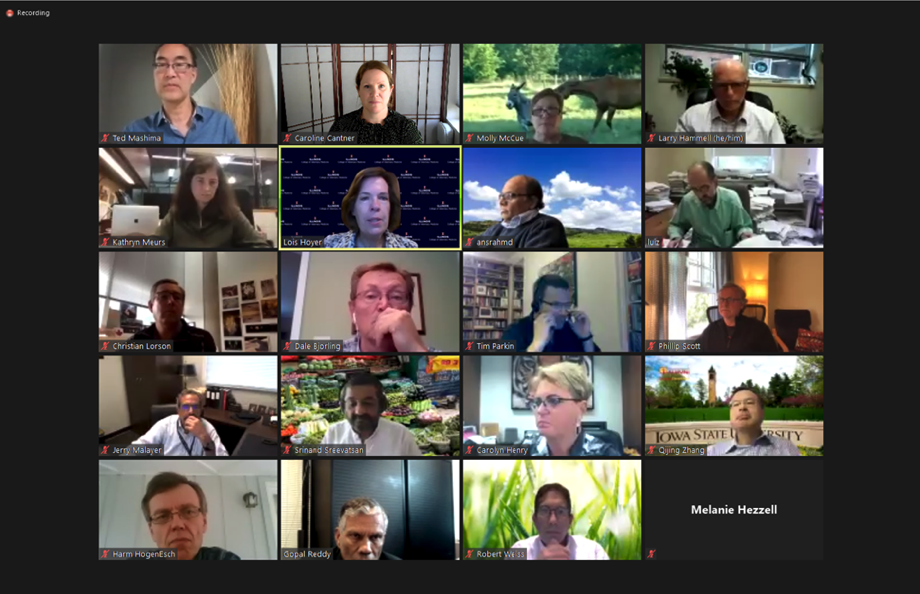
VetCAN Virtual Career Fair Largest Ever

The AAVMC’s Veterinary Career Advisor Network (VetCAN)’s September 26 DVM Virtual Career Fair – Small Animal Predominant was the largest ever, with 202 employers and more than 850 job seekers from 34 AAVMC member institutions registering for the event.
“This fair surpassed all previous fairs and was the largest virtual career fair in veterinary medicine,” said Katelyn Jerles, assistant director for career services at the University of Florida College of Veterinary Medicine and VetCAN chair-elect. She said the job seeker-to-employer ratio was about 4:1.
“We know this is the new normal for recruiting, hiring and job searching so we are looking forward to hosting more of these virtual fairs in the future to meet both the employer and job seeker demand,” she added.
Planning is underway for the DVM Virtual Career Fair – Large Animal Predominant which will be presented on January 23, 2021 from 1 – 4 p.m. EST. Jerles says VetCAN is encouraging all prospective large animal employers and practitioners to register so they can connect with DVM students interested in large animal careers.
As a result of the popularity of the small animal fair, VetCAN officials are determining the date for the next Small Animal Virtual Career Fair this spring.
The Veterinary Career Advisor Network (VetCAN) was founded in 2014 as a resource and network for individuals working with veterinary students and alumni in the area of career and professional development.
For more information, contact Jerles at jerles@ufl.edu.
Zoetis, AAVMC Announce 2021 Veterinary Student Scholarship Award
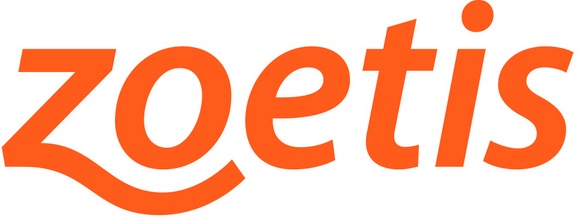
Zoetis Inc. and the AAVMC are partnering on the 2021 Zoetis Veterinary Student Scholarship Award Program. Open to second and third-year veterinary students in the United States and Caribbean, the $2,000 scholarships are awarded on the basis of academic excellence, financial need, diversity, sustainability, leadership and career interest. The deadline for applications is December 2, 2020. Interested candidates may apply through the Zoetis VETVANCE program. Winners will be announced in March 2021. To date, the Zoetis Veterinary Student Scholarship program has awarded over 3,600 scholarships totaling more than $7 million.
AAVMC Launches Newest Newsletter

The AAVMC has launched a fourth periodic newsletter called Focus. Created in response to an idea that emerged during the strategic plan development process, the newsletter will take a deeper look at AAVMC activities in a singular “hot-topic” issue area. For example, the inaugural edition was devoted to the AAVMC’s rapidly developing wellbeing program. Future editions are expected to look at diversity, equity and inclusion; the research enterprise; admissions and recruitment; encouraging instructional excellence and other areas. To subscribe, click here.
Reminder: October 15 Deadline for 2021 AAVMC Professional Recognition Awards

The nomination period for the AAVMC’s 2020-21 series of professional recognition awards closes October 15, 2021. The AAVMC annually presents a series of professional recognition awards designed to inspire and recognize excellence in teaching, research, service, diversity and inclusion and other important areas of academic veterinary medicine. For detailed information about the AAVMC awards program, please visit our awards page here or contact AAVMC Manager for Member Engagement Ms. Lawann Blunt at lblunt@aavmc.org. Nomination materials must be submitted through this portal for consideration.
USAID Funds $100 million Zoonotic Disease Program at Tufts
Tufts University will lead a USAID-funded $100 million, five-year program to understand and address threats posed by zoonotic viral diseases.
The “Strategies to Prevent Spillover (STOP Spillover)” program will involve a consortium of wildlife and human disease experts from Tufts and other organizations around the world. The program seeks to enhance the capacity of local, national and regional institutions in countries across Africa and Asia to understand factors that contribute to the risk of zoonotic spillover; to develop and implement measures to reduce early risk of spillover and spread; and to quickly identify and respond to spillover events.
“The transmission of zoonotic viral diseases to humans can cost lives, disrupt economies, and create lasting human health and societal problems, as we’ve seen most recently with the impact of COVID-19,” said Deborah T. Kochevar, the STOP Spillover program director and a faculty member at Tufts.
With viral zoonotic disease outbreaks becoming increasingly frequent, Kochevar says that it is not enough to simply know what to do to reduce risks. “We must also work with partners to institutionalize knowledge in existing systems, adapt learning to the local context and continuously expand upon new-found expertise.”
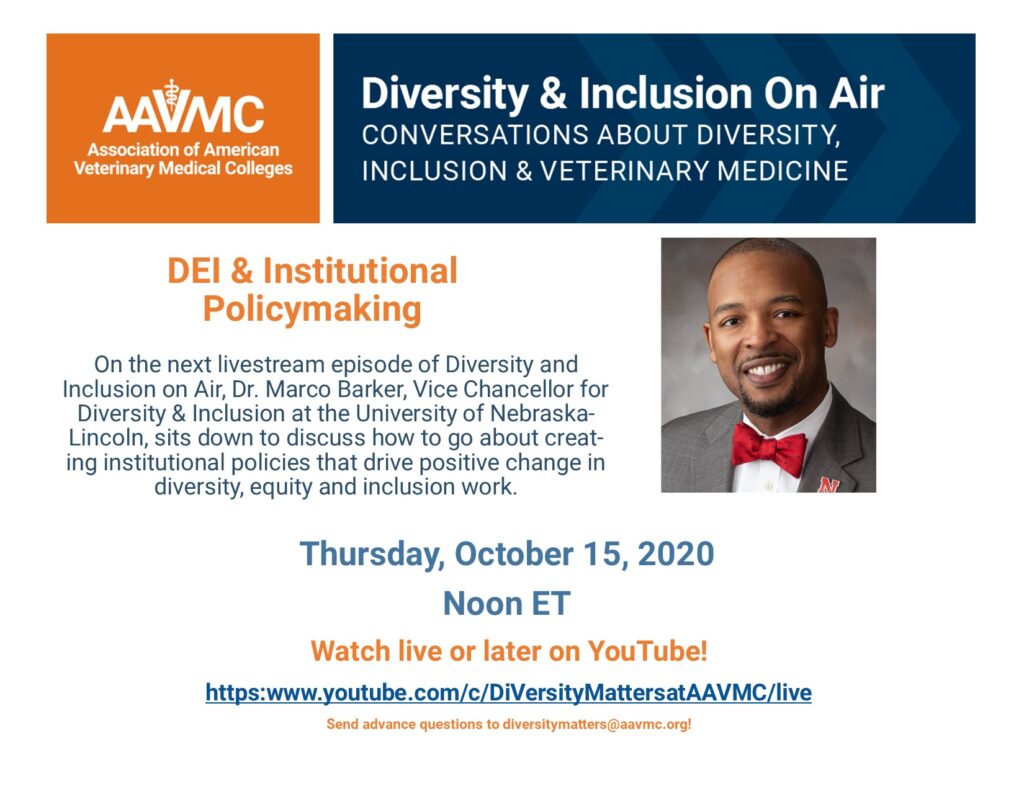
IPEC Expert Panel: Leveraging the IPEC Competency Framework to Transform Health Professions Education
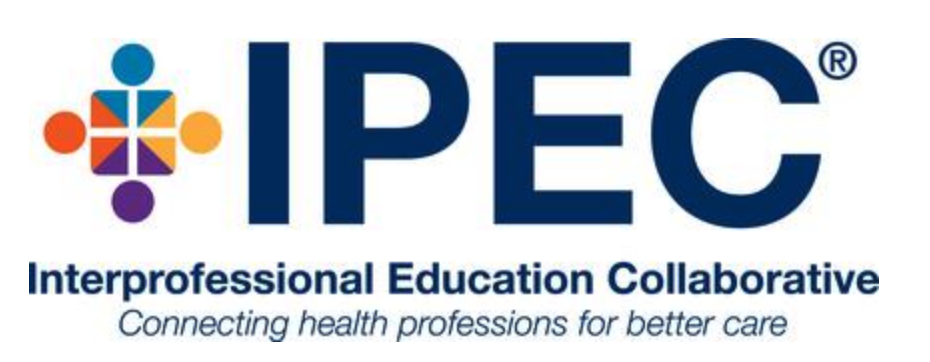
The Interprofessional Education Collaborative (IPEC) has partnered with the University of Texas Health Science Center at San Antonio to develop an institutional assessment tool and is recruiting a panel of experts to guide the project. This tool will standardize assessment of institutional progress towards IPE implementation using the IPEC framework. This project has been supported through grant funding with a grant from the Josiah Macy Jr. Foundation. For more information about this project and the application process, click here. To view an informational flyer, click here. Questions may be directed to Kelly Ragucci at the American Association of Colleges of Pharmacy (kragucci@aacp.org) and/or Joseph Zorek at the UT Health San Antonio at zorek@uthscsa.edu. The AAVMC is a member of IPEC.
In the News
What You Need to Know About Adopting Dogs
Good Morning America
Cats Shed More than Dogs. The Coronavirus, Not Fur
New York Times
MU Researchers Identify Mutations in Virus Causing COVID-19
Sound Health
How to Help Your Pet With Separation Anxiety
Popular Science
Tuskegee University Receives Grant to Assist in Breast Cancer Research
MSN
Veterinary Faculty Members Suggest Tips for Online Teaching
JAVMA News
One Health is a Hot Topic
Steve Dale CABC (blog)
National Veterinary Scholars Symposium Goes Virtual
JAVMA News
‘Substantial’ Portion of Pets Catch SARS-CoV-2, Study Finds
VIN
UGA Faculty Will Collaborate on Evaluating COVID-19 Control Methods in Meat Processing
Southeast AgNet
Smartphone Saliva Test for COVID-19 Earns UF Professor Honors in National Contest
Main St. Daily News
Don’t Expect COVID-19 to Subside
National Hog Farmer
Remdesivir is no COVID Magic Bullet for Humans but Could be Magic for Moggies
The New Daily
Vitamin E Might Provide Support For Horses in Stressful Situations
The Horse
An Overdue Awakening: Addressing Systemic Racism in Veterinary Medicine
dvm360
New Study Links Combination of Two Sugars in High Fructose Corn Syrup to Heart Health Risks
Infosurhoy
University of Pennsylvania Program Training Dogs to Sniff out Spotted Lanternfly Eggs
News Channel 3
LiteSheet LED UV-C Disinfecting Cabinet Fights SARS COVID-19
Light Technologies
Search and Rescue Dogs Fared Well After Working at 9/11 Sites
Medicine Net
New T-cell-based Vaccine Strategy Provides Broader Protection Against Seasonal Influenza
Medical News
Texas Tech Achieves Milestone on Veterinary School
Feedstuffs
University of Illinois Creates Rapid Saliva Test for COVID-19 Virus
JAVMA News
Veterinary Behaviorist Suggests Preparing Your Animal for a Post-COVID Climate
WCVB-5
Donald Trump, Thank Cats for Remdesivir
New Republic
Veterinary Behaviorist Suggests Preparing Your Animal for a Post-COVID Climate
WCVB-5
From Our Members
CSU Secures $3.1 Million from NIH to Advance SolaVAX Coronavirus Vaccine Research
Colorado State
New Vaccine Strategy Harnesses ‘Foot Soldier’ T-Cells To Provide Protection Against Influenza
University of Wisconsin
Gators Helping a Gator: Bob, a 660-pound Alligator Treated at UF, Goes Viral
University of Florida
First-ever Stem Cell Treatment on a Non-human Primate a Success
Colorado State
Training the Next Generation of Scientists During a Pandemic: “Now More Important Than Ever”
Colorado State
Veterinary College Receives $3.5 Million NIH Grant to Develop Lyme Disease Vaccine
Virginia-Maryland
An Intertwined Approach: CSU Infectious Disease Experts Make Progress in National Pandemic Response
Colorado State
New Research Connects the Hormones We’re Born with to Lifetime Risk for Immunological Diseases
Michigan State
CSU Included Among Top Universities Solving Coronavirus Pandemic
Colorado State
Helping Veterinary Students Understand the Business Side of Practice
Tufts University
LSU Veterinary School Helps Care for Animals Affected by Hurricane Laura
Louisiana State
Gene Links Short-term Memory to Unexpected Brain Area
Cornell University
Gene-edited Livestock ‘Surrogate Sires’ Successfully Made Fertile
University of Wisconsin
Smartphone-based Saliva Test That Can Detect COVID-19 Earns UF Professor Honors in National Contest
University of Florida
NIH/NCI Renews Longest-running P01 Program Project Grant at The Ohio State University
The Ohio State University
A Push to Prevent the Next Pandemic
Tufts University
People in Motion
Dr. India Lane, Professor of Small Animal Clinical Sciences, has been named Associate Dean of Academic Affairs at the University of Tennessee College of Veterinary Medicine.
Dr. Sonia Cheetham Brow, Professor of Virology, has been named Associate Dean of Research at St. George’s University School of Veterinary Medicine.
Dr. David Pascual, a Professor of Infectious Diseases at the University of Florida College of Veterinary Medicine, has been named Associate Dean for Research and Graduate Studies.
Dr. Robert McCorkell has been appointed Interim Dean of the Faculty of Veterinary Medicine at the University of Calgary.
“Like” us on Facebook or follow us on Twitter:




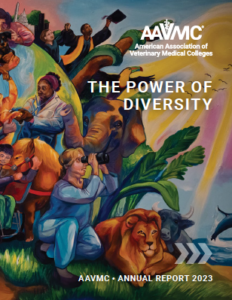


SHARE